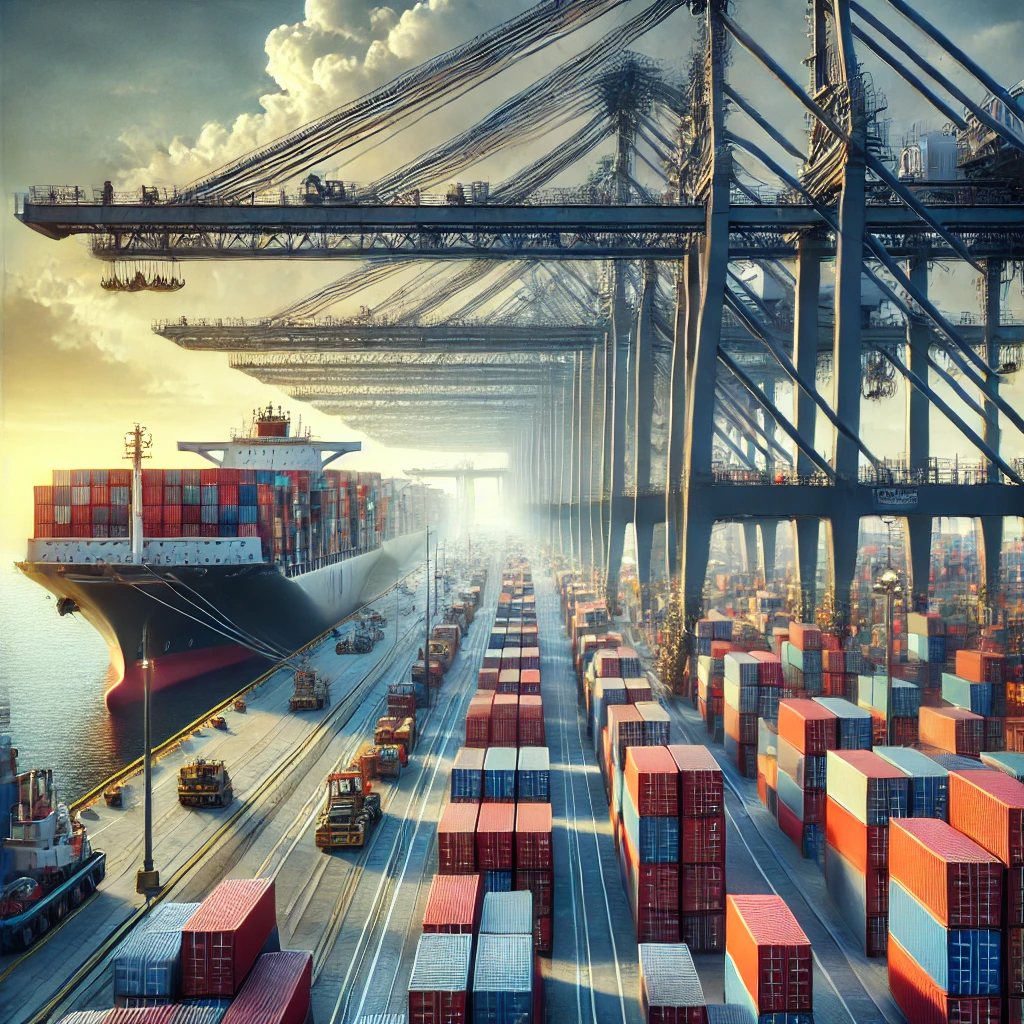
07 Nov Impact of Trump’s Election on Global Trade and Logistics Industry
Donald Trump’s victory in the U.S. presidential election is seen as a potential disruption to international trade, with importers concerned over possible spikes in container shipping freight rates. Trump has pledged to impose tariffs as high as 20% on all U.S. imports and up to 100% on Chinese goods, reminiscent of the 2018 trade war that caused shipping rates to surge by over 70%.
Peter Sand, Chief Analyst at Xeneta, observed that such tariffs would likely lead to frontloading by U.S. shippers, adding pressure to already-strained supply chains. Average spot rates for U.S. West Coast and East Coast ports are currently high, and further frontloading could cause rates to increase. If Trump’s tariffs are imposed, analysts foresee retaliatory measures from China, possibly worsening trade tensions and rate volatility.
Key Impacts Across Sectors
- Oil: Trump’s “drill, baby, drill” approach to domestic energy could drive oil prices as low as $40 per barrel, lowering operational costs for domestic trucking and shipping. Lower oil prices would reduce inflationary pressure, potentially boosting demand in the domestic economy and benefiting logistics providers across trucking, rail, and warehousing.
- Tariffs: Trump’s tariff plans could increase production costs, driving more re-shoring of manufacturing to the U.S. or near-sourcing from Mexico. While this may support U.S. warehousing and domestic logistics, it could hinder international freight forwarding and air cargo, particularly if Europe imposes counter-tariffs.
- Automotive Logistics: A slowdown in the transition to electric vehicles (EVs) would likely support U.S. automotive logistics, as manufacturing internal combustion engines (ICE) is more logistics-intensive. European auto logistics may also benefit if EU EV targets are adjusted in response to U.S. policy shifts.
- Regulation and Taxation: Trump’s promise to roll back taxes and reduce regulations could stimulate U.S. economic growth, supporting domestic logistics sectors such as trucking, warehousing, and intermodal transport. His administration plans to eliminate unnecessary regulations, potentially reducing business costs and inflationary pressures.
- Climate Policy: Trump’s reluctance to prioritize climate action could lower operational costs for shipping lines and air cargo carriers. However, reduced investment in green energy may delay the shift to sustainable logistics, affecting intermodal and rail freight sectors that benefit from low-carbon initiatives.
Conclusion
While Trump’s policies may boost domestic logistics and trucking, international shipping, air freight, and forwarding could face challenges. An initial spike in imports due to tariff anticipation may temporarily raise shipping rates, but the longer-term impact may see softened global demand if tariffs lead to increased prices. Ultimately, domestic logistics could benefit, while the international sector faces uncertainty.

